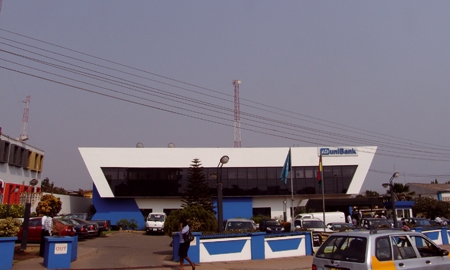Ghana’s banking sector has been the driving force behind the recent financial stability and economic growth in the country. The privately owned
uniBank in particular has made significant strides in lending to small and medium-size enterprises (SMEs), which account for 92% of the locally owned businesses in Ghana. As well as working with companies on an international level, it is putting a significant portion of its revenues to improve the community.
Although the banking sector in Ghana is relatively crowded with 28 banks, uniBank has a reputation as the top lender for SMEs, providing not only financial support but also advice.
“We are able to provide credit without insisting on significant collateral, which is one of the key obstacles in this area.” FELIX NYARKO-PONG,
CEO of uniBank Ghana Ltd. |
“We are able to provide credit without insisting on significant collateral, which is one of the key obstacles in this area,” says Felix Nyarko-Pong, CEO of uniBank Ghana Limited, who elaborates that while the policies for helping SMEs to flourish are already in place, people still need easier access to credit. “With a better understanding of these SME businesses, we have made it very profitable for both the businesses and ourselves and have provided the capacity development required in this area.”
UniBank also offers free consultancy aimed at the growth and development of SMEs. Last year, the bank won an award for exemplary advisory services.
In particular, uniBank provides exemplary services for SMEs in the oil industry.
“We have established an energy desk to focus on the oil industry as a whole and the participation of SMEs within the oil industry,” explains Mr. Nyarko-Pong, noting that although Ghana is now a middle-income economy, further development will be driven by the SMEs, creating further opportunities within the nation.
UniBank is also striving to modernize the banking sector by implementing its own mobile banking program, Uni-mobile. Mr. Nyarko-Pong points out that considering almost every adult has a cell phone the product allows Ghanaians to use banking services without having to be physically present. After launching a campaign to create awareness for the Uni-mobile product, more than 500 people signed only two days.
UniBank’s modern products and easy access to loans contribute to the Ghanaian economy, but the company is also committed to Corporate Social Responsibility (CSR).
“For us in uniBank, CSR is not a project, but rather a caring and supportive community partnering activity,” says Mr. Nyarko-Pong, highlighting health and education as the principal issues tackled by uniBank. One of its biggest health initiatives organizes medical missions where
uniBank pays for doctors and medicines and provided for areas of the country where the citizens do not have access to proper medical care.

0 COMMENTS